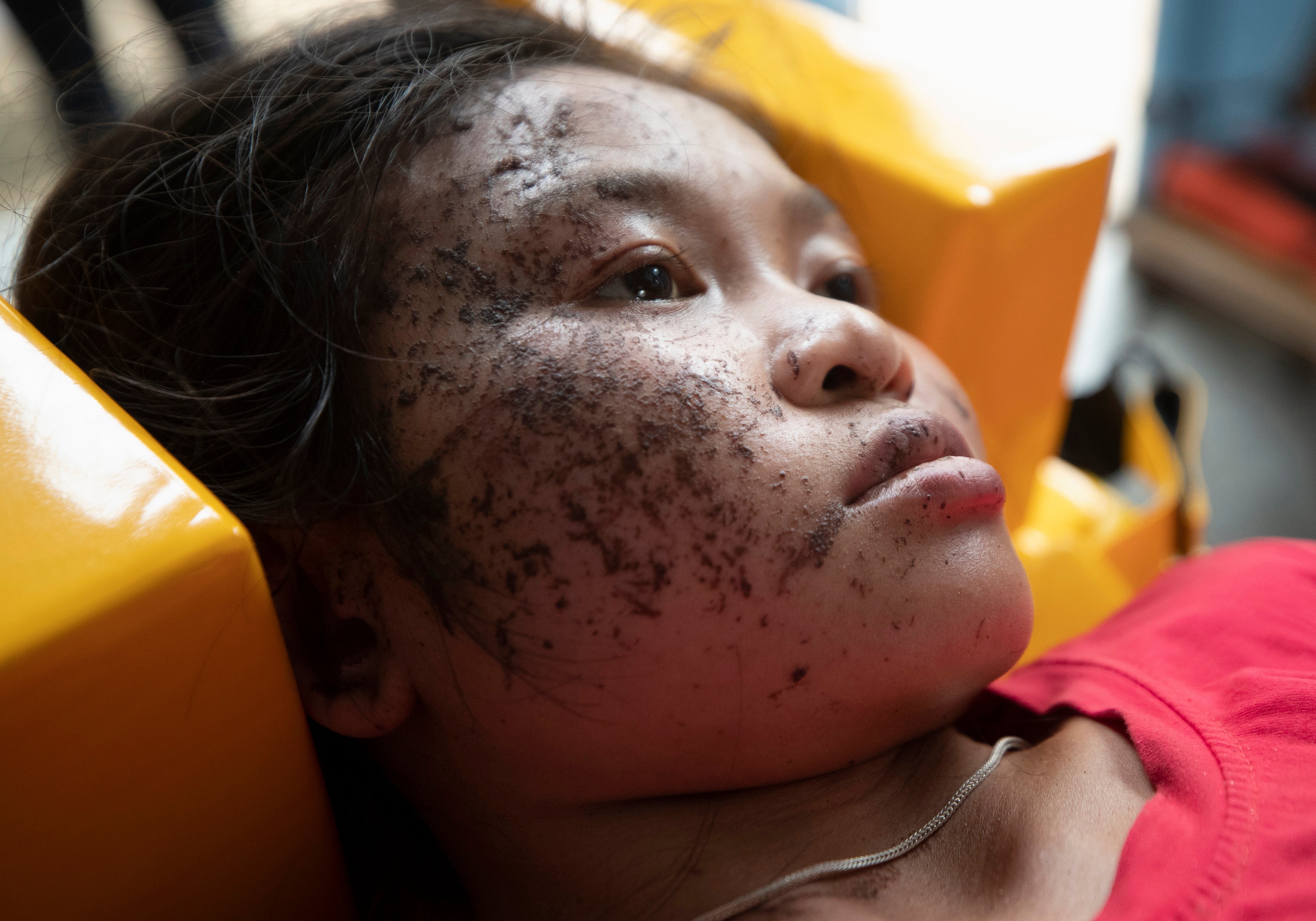Thailand denies sending fleeing villagers back to Myanmar
Thailand’s prime minister is denying that his country’s security forces are sending villagers back to Myanmar who fled from military airstrikes and says his government is ready to shelter anyone who is escaping fighting

Your support helps us to tell the story
From reproductive rights to climate change to Big Tech, The Independent is on the ground when the story is developing. Whether it's investigating the financials of Elon Musk's pro-Trump PAC or producing our latest documentary, 'The A Word', which shines a light on the American women fighting for reproductive rights, we know how important it is to parse out the facts from the messaging.
At such a critical moment in US history, we need reporters on the ground. Your donation allows us to keep sending journalists to speak to both sides of the story.
The Independent is trusted by Americans across the entire political spectrum. And unlike many other quality news outlets, we choose not to lock Americans out of our reporting and analysis with paywalls. We believe quality journalism should be available to everyone, paid for by those who can afford it.
Your support makes all the difference.Thailand’s prime minister denied Tuesday that his country’s security forces have sent villagers back to Myanmar who fled from military airstrikes and said his government is ready to shelter anyone who is escaping fighting.
His comments came a day after humanitarian groups said the Thai military had begun sending back some of the thousands of people who have fled a series of airstrikes by Myanmar's military.
“There is no influx of refugees yet. We asked those who crossed to Thailand if they have any problem in their area. When they say no problem, we just asked them to return to their land first. We asked, we did not use any force,” Prime Minister Prayuth Chan-ocha told reporters.
The weekend strikes, which sent ethnic Karen people to seek safety in Thailand, were another escalation in the violent crackdown by Myanmar’s junta on protests against its Feb. 1 takeover.
At least 510 protesters have been killed since the coup, according to Myanmar’s Assistance Association for Political Prisoners, which says the actual toll is likely much higher. It says 2,574 people have been detained. Protests continued Tuesday despite the deaths of more than 100 people on Saturday alone.
The coup that ousted the government of Aung San Suu Kyi reversed the country's progress toward democracy since her National League for Democracy party won elections in 2015 after five decades of military rule.
At Thailand’s Mae Sam Laep village along the Salween River, which forms the border with Myanmar, paramilitary Thai Rangers on Tuesday twice waved off a boat that had come from the other side carrying seven people, including one lying flat and another with a bandage on his head. But ambulances soon arrived on the Thai side and it landed anyway.
Thai villagers helped medical staff carry the injured people on stretchers to a small clinic at a nearby checkpoint. One man had large bruises on his back with open wounds, an injury one medical staffer said could have been caused by an explosion.
An elderly woman in the group had small cuts and scabs all over her face. Thai nurses in protective gear to guard against COVID-19 attended to her, giving her and others tests for the coronavirus.
Another villager from the boat, 48-year-old Aye Ja Bi, said he had been wounded by a bomb dropped by a plane. His legs were hit by shrapnel and his ears were ringing, he said, but he was unable to travel to get help until Tuesday.
The airstrikes appeared to be retaliation for an attack by guerrillas of the Karen National Liberation Army on a government military outpost, in which they claimed to have killed 10 soldiers and captured eight. The group is fighting for greater autonomy for the Karen people.
Thai authorities, who claimed weeks ago to be preparing for an influx of refugees, have responded inconsistently. A group of 2,500-3,000 refugees crossed into Thailand on Sunday, according to several humanitarian aid agencies who have long worked with the Karen.
They said on Monday, however, that Thai soldiers had begun to force people to return to Myanmar.
“They told them it was safe to go back even though it is not safe. They were afraid to go back but they had no choice,” said a spokesperson for the Karen Peace Support Network, a group of Karen civil society organizations in Myanmar.
Two other people confirmed that refugees were being sent back to Myanmar. All three spoke on condition of anonymity because of the sensitive nature of the issue.